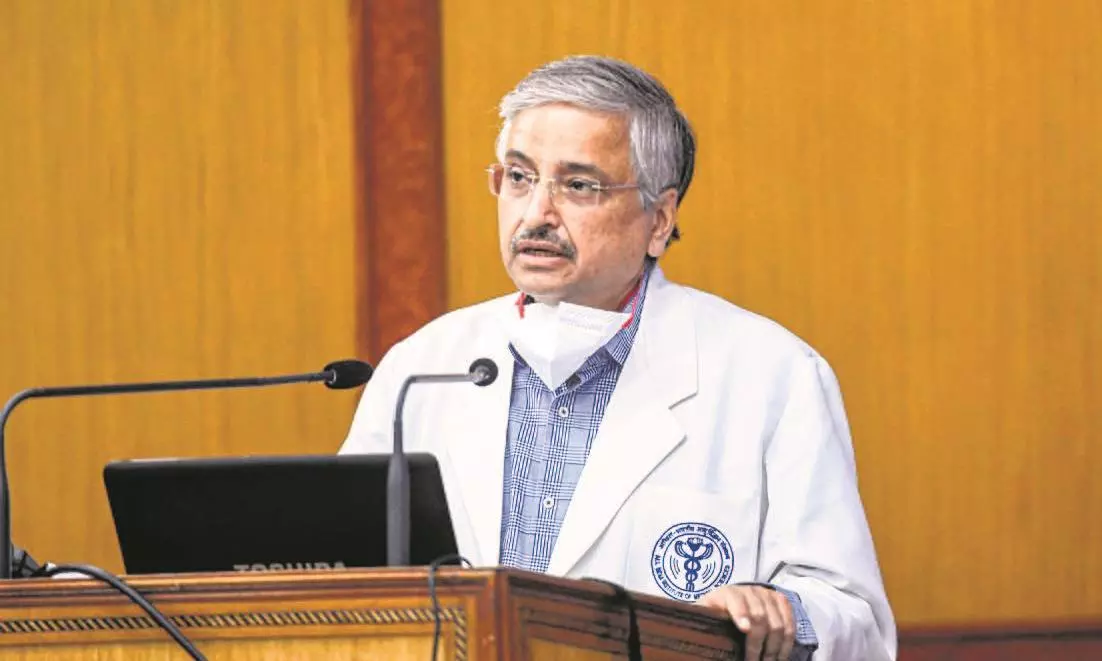

AIIMS Chief Dr Randeep Guleria/Image from PTI
AIIMS Chief warns of COVID third wave in next 6 to 8 weeks
text_fieldsAs several states has started easing lockdown restrictions after weeks of strict curbs, AIIMS chief Dr Randeep Guleria warned on the 'inevictable' third wave of COVID in the next sex-eight weeks in the country.
While speaking to NDTV this morning, Dr Guleria said that though it will take some time for the number of cases to start rising at the national level, as crowds are building up and people are gathering, the third wave could happen within next six to eight weeks or may be a little longer.
He also pointed out about the lack of Covid-appropriate behaviour and also complained that that people have not learnt from what happened between the first and the second wave.
"It all depends on how we go ahead in terms of Covid-appropriate behaviour and preventing crowds," he added
Meanwhile, confirming Mr Guleria's observations on Covid-appropriate behaviour, a survey by LocalCircles found that 31 per cent of citizens plan to visit a restaurant, while 29 per cent plan to visit malls in the next 60 days.
The survey also found that 75 per cent of Indian households expect visitors like domestic help, service providers etc. to their homes in the next 30 days. As many as 43 per cent are expecting visits from friends and relatives who do not stay with them, while 27 per cent are expecting friends, neighbours and colleagues to visit them in the next 30 days.
Analysing the survey findings,taking inferences from above mentioned activities both by the business owners and the citizens which disregards COVId protocol and guidelines, and given the known air-borne transmission of the SARS-COV2 strains, the report concludes that a possible third wave may be coming sooner than anticipated.
In country where only 250 million doses have been administered with a population of 1.4 billion the survey said that the country cannot be fully out of danger till most of the population is vaccinated, quoting doctor's warning.
India experienced difficult consequences for its negligence in April and May with almost 60 per cent individuals having someone in their social network getting impacted by the second wave of the pandemic.
A debilitating second wave had led to the shortage of hospital beds and medical supplies in various parts of the country. SOS messages on social media had caught the world's attention with many nations coming forward to help.






















